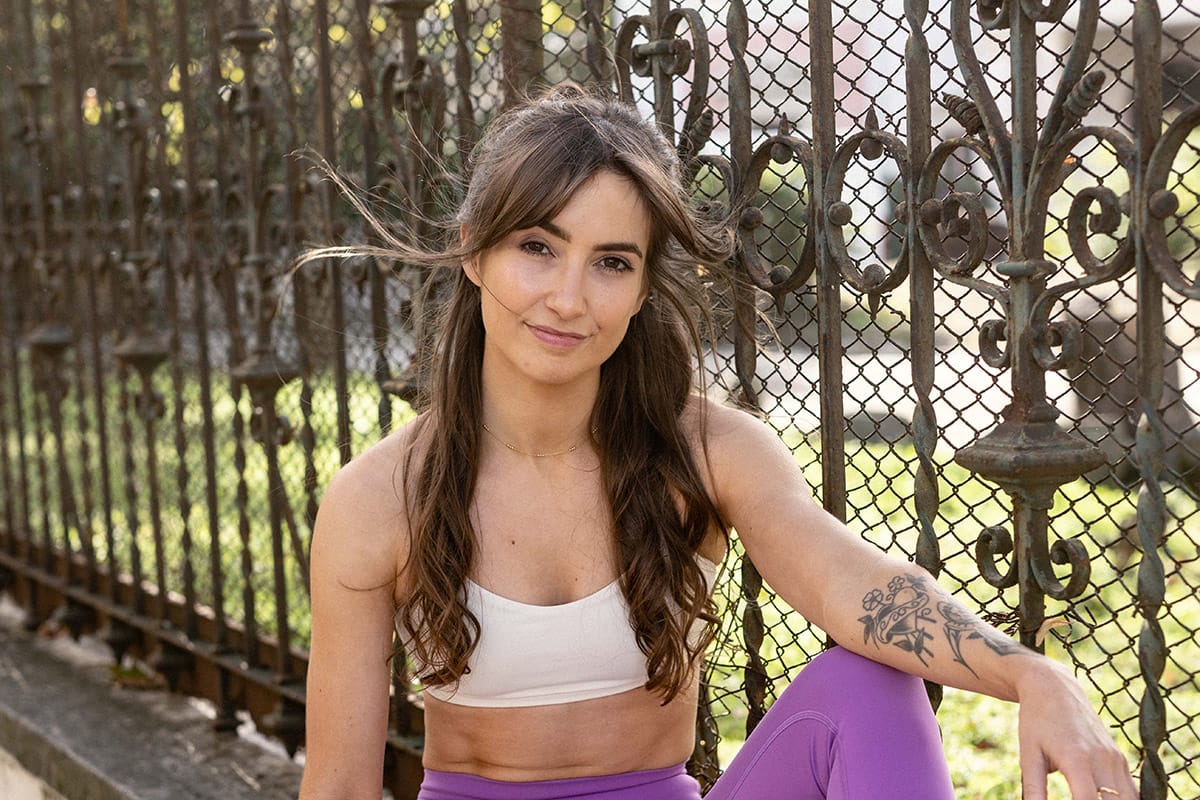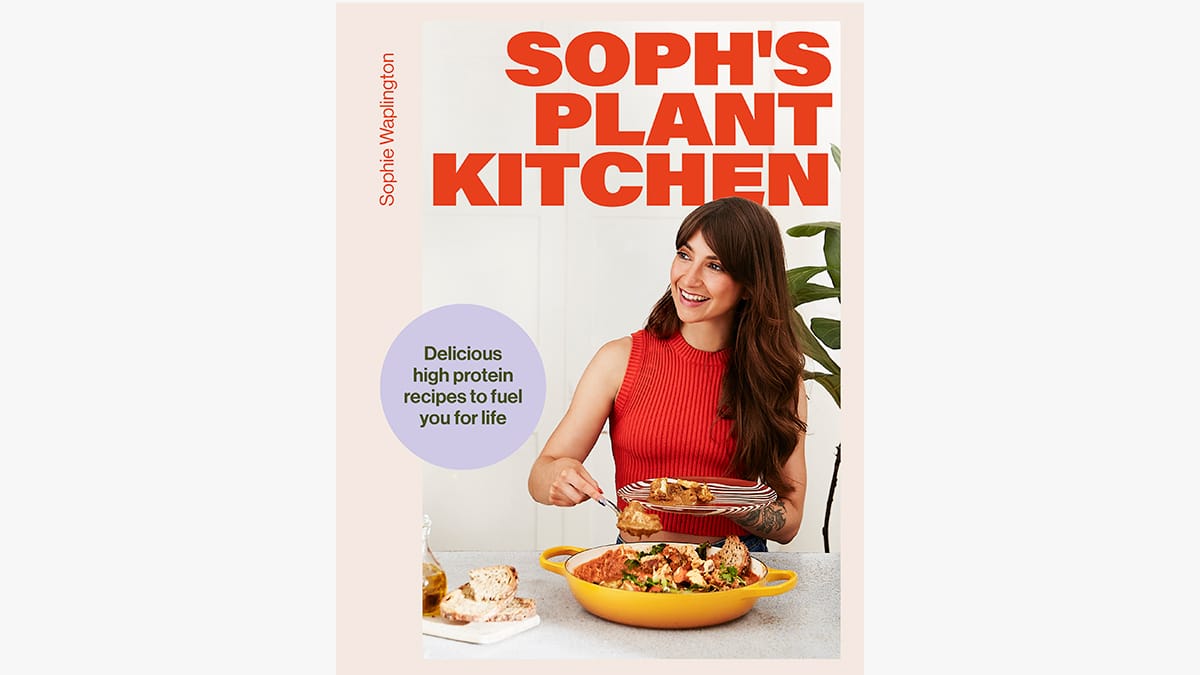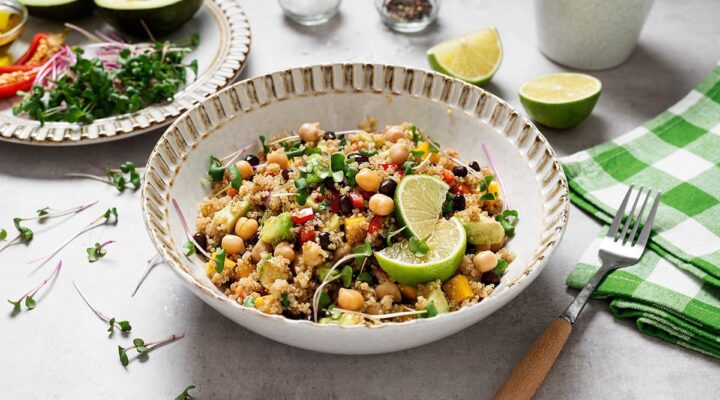Fuelled by Form: Plant-Based Chef Sophie Waplington Shares Her Culinary Journey

Studies suggest that adopting a plant-based diet can bestow healthier skin, a longer lifespan and a lower carbon footprint. But while cutting out animal products is undoubtedly a big step, arguably the real challenge lies in transforming a fridge full of raw plants into balanced, flavourful meals.
From bland tofu and mushy lentils to wilting lunchbox salads, first-time vegans often fall victim to a laundry list of culinary pitfalls, which is just one reason why vegan cook Soph Waplington decided to launch @sophsplantkitchen – a digital platform dedicated to helping busy people create protein- and fibre-packed meals without meat and dairy.
Drawing from years of trial and error, Waplington’s recipes cover everything from meal-prep lunches to comforting classics and high-protein treats, all under the ethos that dishes should be as nourishing as they are tasty.
With a growing online fanbase, she’s recently brought her best creations together in the form of a debut cookbook, ‘Soph’s Plant Kitchen: Delicious High-Protein Recipes to Fuel You for Life’. Ahead of its release in April, we caught up with Sophie to chat about her sleep routine, her favourite foods and why plant protein offers extra gut-based benefits.
How did you discover plant-based eating?
I’ve never actually eaten meat; my mother raised me as a vegetarian. As a child, I had a deep appreciation for animals and was aware of where meat came from, so I knew I could never eat one.
As I got older, I learned more about the effects of the dairy industry, mostly from documentaries and online information, so at 24, I decided to remove all animal products from my life. It was pretty much an overnight switch. From there, I started to learn all about the health and environmental benefits of being vegan, which further cemented my decision to exclusively eat plants.
Can you tell me about your journey to becoming a plant-based chef?
Growing up as the ‘awkward vegetarian’ really shaped my identity. Answering questions like “Where do you get your protein?” sparked my interest in plant-based nutrition, which led me to take a deep dive into the research and experiment in the kitchen.
In the ’90s, vegetarianism was gaining traction, but it wasn’t yet mainstream, so I was always the person tasked with preparing and bringing food for school lunches, trips and even meals out at restaurants. It was during this time that my love for food took root and grew.
At university, I often cooked for friends, showing them that meatless meals could be just as tasty and fun. I collected cookbooks, reading them cover to cover, and was always amazed by the creativity and talent of chefs. That’s when I realised I wanted to pursue a career in food.
In my early 20s, I began experimenting with the flavours and ingredients I loved, creating my own unique dishes. When I transitioned to a vegan diet, the challenge of recreating familiar flavours, such as cheesy ones, became even more exciting. In 2018, I decided to leave my job and work full-time as a chef at a North London cafe.
I started making everything from scratch – seitan, arepas – and with social media on the rise, I began sharing my creations online as a hobby. It quickly grew from there. I never expected it to gain this much attention, and I’m constantly amazed by the number of people who now cook my recipes.
It’s surreal, but incredibly rewarding to know that my work is making a difference. Cooking plant-based meals high in protein is my way of practising activism. Every bit of animal meat replaced by plants is a win – for us, the planet and the animals.
What are the main benefits people can experience from switching to plant-based eating?
Swapping animal protein for plant protein offers immediate health benefits, starting with more dietary fibre. Plant-based protein sources come naturally packed with fibre, while animal protein contains none – one reason many people struggle to get enough.
Plant proteins are also typically lower in saturated fat, which is a major win for heart health.
Plus, by choosing plant-based options, you’re naturally combining different sources (think tofu and rice, rice and lentils, or chickpeas and cashew cream). This results in a more diverse intake of plants, which is fantastic for our gut microbes. And the healthier our gut microbes, the happier and healthier we feel.
Do you think it’s a myth that plant-based eaters can’t get enough protein?
Absolutely. As long as we include a variety of plant protein sources in our diet, we can be healthy and pursue our fitness goals.
If you could only eat one plant-based food forever, what would it be?
This is a tough one since we need to eat a diverse range of plant proteins, so I’ll pick three: tofu, chickpeas and lentils.
What’s your favourite recipe to cook when you’re short on time?
My classic ‘Bean Bowl Method’ from my new cookbook. It’s endlessly adaptable to whatever seasonal vegetables you have on hand. Cosy, tasty, quick and budget-friendly.
How do you incorporate Form’s protein powders into your daily routine?
I’ve been using Form’s Superblend Chocolate Salted Caramel powder for about seven years now. It’s hands down the tastiest protein I’ve found, with a fantastic blend of plant protein sources.
Post-workout, I’ll usually have a bowl of ‘proats’ (protein oats).
If I haven’t quite met my protein target for the day, I’ll mix it into a yoghurt bowl with some berries and dark chocolate after dinner as a protein top-up. It’s healthy, convenient and yummy.
What’s the most underrated plant-based food out there?
I still believe beans don’t get the love they deserve. They’re packed with protein, complex carbs and a ton of other micronutrients. Plus, they’re available year-round, cheap and incredibly convenient. It’s time we all got aboard the bean train.
Do you have any wellness routines or rituals you can’t live without?
Sleep is so important to me; I really feel it if I don’t get a good night’s rest. I’ve created a sleep routine to help me wind down: no phone or food after 8 pm, brewing a sleep-blend tea, taking a hot shower, listening to white noise and having 15 minutes of reading. I make sure to switch my lights off by 10:30 pm.
What’s the best piece of cooking advice you’ve ever been given?
Respect your vegetables. Treat them with love, care and attention. And don’t forget to lightly salt at every layer, every time you add something to the pan.

What are your plans for the future?
I want to make my cookbook a national success and help a larger number of people live healthy, active lifestyles fuelled by plants.
We’re only here for a short time, so let’s enjoy life, respect our planet and care for the people and animals we share it with.


















